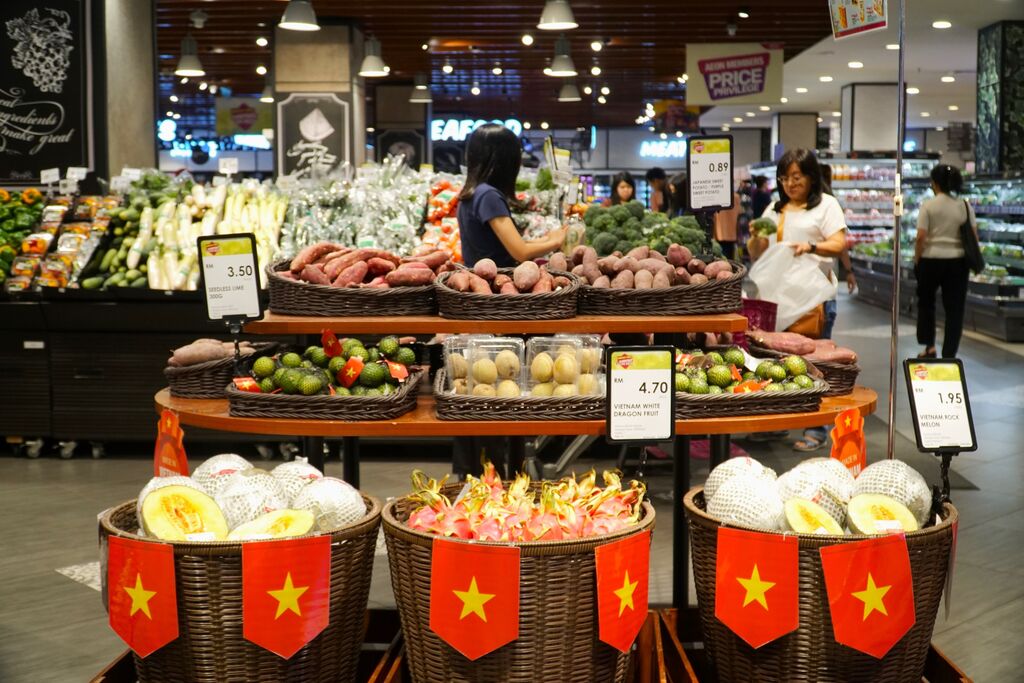 |
| Products of Vietnamese origin are sold at an AEON mall in Malaysia__Photo: VNA |
The Ministry of Industry and Trade (MOIT) has released the second draft decree on goods origin. Designed to replace Decree 31/2018/ND-CP, the draft not only serves the import-export management but also helps intercept deceptive practices related to the mislabeling of product origin.
Enhancing surveillance and transparency
The draft introduces several practical improvements, most notably the enhancement of post-clearance inspections related to origin declarations by businesses. It expands the range of violations to include document forgery and false self-certification. Additionally, the draft mandates the application of digital technology to manage electronic certificates of origin (e-C/O), facilitating more accurate and transparent traceability.
Businesses will be allowed to self-certify the origin of their goods, instead of having to wait for certification from state authorities. This change will enable quicker market access and help reduce administrative burdens, particularly benefiting law-abiding enterprises. However, businesses are obliged to satisfy strict criteria, including declaring sufficient operational capacity, maintaining clear and comprehensive records, and submitting to random inspections.
Clarifying preferential and non-preferential rules of origin
To align with deeper economic integration and fulfill Vietnam’s commitments under next-generation free trade agreements (FTAs), the draft clearly distinguishes between preferential and non-preferential rules of origin.
Accordingly, preferential rules of origin will be applied to determine whether goods qualify for tariff reduction or exemption under international agreements to which Vietnam is a contracting party, including the Generalized System of Preferences (GSP) and other unilateral preference programs.
Meanwhile, non-preferential rules of origin will be used to establish the origin of goods for such purposes as most-favored nation (MFN) treatment, trade remedies, government procurement, among others.
A notable update in the draft concerns product sets that are bundled items sold as a single unit. Accordingly, a product set is considered to have Vietnamese origin only if all components originate in Vietnam, or if the value of non-originating components does not exceed 15 percent of the set’s total value.
Identical and interchangeable goods or materials may be deemed originating in the country when physical separation is impractical. In such cases, accredited inventory methods that are consistent with generally accepted accounting principles may be applied, provided their application remains consistent throughout the fiscal year.
Empowering local authorities and supporting businesses
The draft also permits the decentralization of C/O issuance. Previously held solely by the MOIT, the authority may now be delegated to provincial-level People’s Committees and authorized local agencies that meet the MOIT-specified conditions. This change is expected to make origin certification more accessible to businesses across the country.
In addition, regulations related to C/O issuance have been significantly eased, making it easier for businesses to complete export procedures. Specifically, businesses will be allowed to request two C/Os for a single shipment, obtain C/Os for goods stored in container freight stations (CFS), and apply for retroactively issued C/Os with validity periods tailored to the rules of importing countries. Besides, the draft also provides clear guidelines for reissuing certificates in case of document loss, technical errors, re-export or re-import.- (VLLF)









